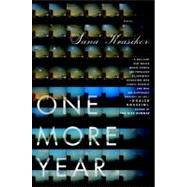
Sana Krasikov was born in the Ukraine and grew up in the former Soviet Republic of Georgia and in the United States. A graduate of the Iowa Writers' Workshop, she is the recipient of an O. Henry Award and a Fulbright Scholarship. She lives in New York City and is at work on her first novel.
| Companion | p. 1 |
| Maia in Yonkers | p. 27 |
| The Alternate | p. 51 |
| Asal | p. 73 |
| Better Half | p. 101 |
| Debt | p. 131 |
| The Repatriates | p. 153 |
| There Will Be No Fourth Rome | p. 179 |
| Table of Contents provided by Blackwell. All Rights Reserved. |
The New copy of this book will include any supplemental materials advertised. Please check the title of the book to determine if it should include any access cards, study guides, lab manuals, CDs, etc.
The Used, Rental and eBook copies of this book are not guaranteed to include any supplemental materials. Typically, only the book itself is included. This is true even if the title states it includes any access cards, study guides, lab manuals, CDs, etc.
Excerpted from One More Year by Sana Krasikov
All rights reserved by the original copyright owners. Excerpts are provided for display purposes only and may not be reproduced, reprinted or distributed without the written permission of the publisher.